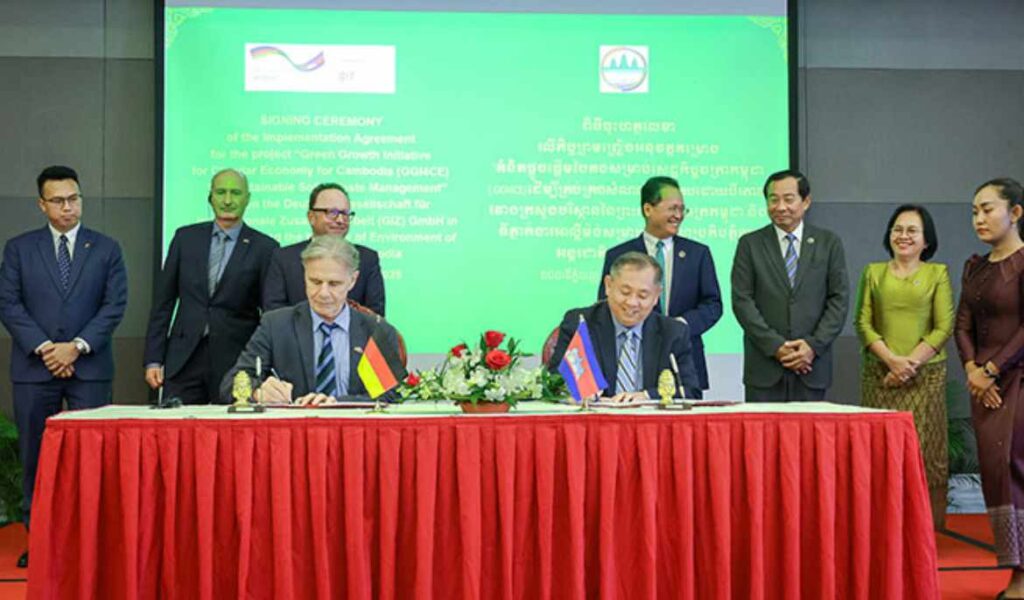Cambodia must reshape its export strategies to meet strict European Union guidelines as the Kingdom loses the benefits of Least Developed Country (LDC) status, says a key UN body advising on the transition.
Cambodia will lose benefits such as tariff and quota exemptions when it graduates from LDC status in 2029.
“Re-calibrating Cambodia’s growth model towards a greener and more inclusive economy is essential for harnessing opportunities, bolstering competitiveness as a champion of green trade, and branding the country as a responsible trade partner,” UN Development Programme (UNDP) country representative Alissar Chakar told a workshop on the transition on Monday.
Cambodia is working on a Smooth Transition Strategy (STC) and a new Trade Policy Framework 2030 to prepare for the challenges and opportunities it faces under the change.
The transition offers new avenues for “strong and resilient growth,” Chakar said.
The EU is Cambodia’s largest export market after the United States.
In the first 11 months of 2024, Cambodia exported more than $4 billion worth of goods to the bloc, a 20.5 percent increase over the same period a year earlier.
The Kingdom imported products worth about $900 million, a 4.9 percent fall year-on-year.
Cambodia’s main exports are textiles, footwear, bicycles, foodstuffs, milled rice and other agricultural products.
“As Cambodia approaches LDC graduation, new ways of doing business will apply since the country would have to fully comply with WTO (World Trade Organisation) and export markets’ rules and regulations,” Chakar said.
“Progressively, trade flexibilities and preferential tariffs designed to support Least Developed Countries will no longer apply.
“One example is the European Union’s Everything But Arms (EBA) policy which has been the backbone of the country’s trade for years allowing duty-free and quota-free imports from Cambodia into the European market.”
The EBA policy offers preferential treatment for exports from LDCs, except weapons and ammunition.
“Additionally, stringent trade standards such as the Rules of Origin, double transformation, and other green standards will apply,” Chakar said.
Double transformation requires a product to undergo at least two stages of production in a country to qualify as a product from that country.
This prevents countries from simply assembling products from imported parts and re-exporting them.
Chakar said Cambodian industries would have to prepare to meet a raft of green trade standards imposed by EU nations.
“The EU is highly committed to environmental sustainability,” she said.
“As such, this key trade partner has stringent green environmental sustainability and climate neutrality trade standards.
“They cover different aspects from product design to sustainable sourcing, chemical safety, and carbon emissions.
“Hence, strategic preparation is needed to prepare Cambodia’s industries and its exports to comply with the Carbon Border Adjustment Mechanism (CBAM), the EU Emissions Trading System (EU ETS), the Corporate Sustainability Due Diligence Directive (CSDD), and the Circular Economy Action Plan.
“These new ways of doing business will influence Cambodia’s trade, investment, and employment landscapes, presenting both challenges and opportunities.”
In line with shedding LDC status by the end of 2029, Cambodia is implementing its Vision 2050 strategy to become an upper-middle-income country by 2030 and a high-income economy by 2050.



